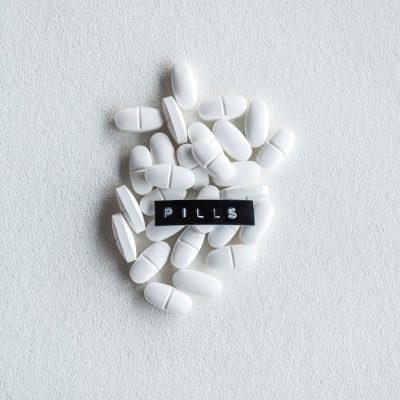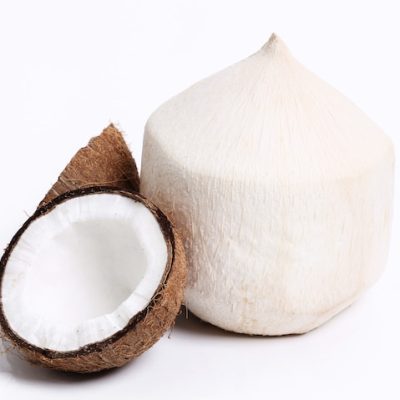In the realm of health and wellness, few subjects are as intriguing and ever-changing as the relationship between probiotics and antibiotics. These two seemingly opposing forces play crucial roles in our bodies, influencing our health in various ways. While antibiotics are often seen as our defense against harmful bacteria, their method can sometimes resemble a broad assault, affecting not only the bad bacteria but also the good ones that reside in our system. This is where probiotics come into play, helping to restore balance and support our bodies in maintaining a healthy state.
Let’s explore the vital role of probiotics during antibiotic treatment, delving into the science, benefits, and practical tips along the way. This post may contain affiliate links, which help keep this content free. Please read our disclosure for more information.
In the larger context of medicine, antibiotics are undoubtedly powerful defenders. They have transformed healthcare, enabling us to tackle bacterial infections that once posed serious risks to human life. Without antibiotics, many routine procedures, such as surgeries and treatments for diseases like tuberculosis and sepsis, would be significantly more dangerous.
Essentially, antibiotics are chemical agents that kill bacteria or inhibit their growth. They can be likened to superheroes in medicine, swooping in to stop the spread of harmful bacteria and keep us healthy. From penicillin, discovered by Alexander Fleming in 1928, to modern antibiotics like azithromycin and ciprofloxacin, these medications have been essential tools in combating infectious diseases.
However, every superhero story has its complications, and antibiotics are no different. While they are highly effective against harmful bacteria, their power can lead to unintended consequences. They often cannot distinguish between the harmful bacteria causing your illness and the beneficial bacteria in your gut, which are crucial for digestion, nutrient absorption, and immunity, among other functions. In their well-meaning effort to eliminate disease-causing bacteria, antibiotics can also wipe out some of our helpful gut bacteria.
Imagine a superhero who, in their eagerness to save the city from villains, inadvertently damages some of the city’s infrastructure. It’s not intentional, but the harm is done nonetheless. This collateral damage to our gut microbiota can create an imbalance known as dysbiosis, leading to uncomfortable symptoms like diarrhea and bloating, and potentially paving the way for more serious health issues.
But here’s where our body’s resilience shines – with the help of probiotics, we can restore this balance and protect our gut health in the long run. While antibiotics are essential for our health, it’s equally important to understand and address their effects on our gut health. By taking a balanced approach, we can harness the benefits of antibiotics while minimizing their side effects, ensuring that the superheroes of our health story create more solutions than problems.
The gut, often overlooked, is a powerhouse that impacts our health in unexpected ways. It’s not just a digestive engine breaking down our food into usable nutrients; it plays a crucial role in shaping our overall health, even in areas that may seem unrelated at first glance.
Digestion? Absolutely. But it goes beyond that. Your gut also influences your mood, affecting feelings of happiness or anxiety. It supports your immune system, helping determine how your body reacts to invaders. It can even impact your weight and skin clarity. Think of it as the silent conductor of an orchestra, ensuring every section works together to create beautiful, harmonious music – in this case, your well-being.
So, what gives the gut such incredible power? The answer lies in its diverse inhabitants – the gut microbiota. This vibrant community of trillions of microorganisms, including bacteria, viruses, and fungi, resides in your digestive tract. Each member of this complex community has a unique role, contributing to a finely-tuned ecosystem that is vital for maintaining your health.
When the gut microbiota is balanced, it operates like a well-oiled machine, supporting digestion, immunity, and even mental health. However, when this balance is disrupted – which can occur during antibiotic treatment – it can lead to issues like poor nutrient absorption, a weakened immune response, and even mood fluctuations.
Therefore, nurturing the health of your gut microbiota is essential. It’s like tending to a garden – for the flowers to flourish, each plant needs the right amount of sunlight, water, and nutrients. Similarly, for us to thrive, our gut microbiota must be in harmony. With proper care, we can cultivate a gut environment that supports our health journey, ensuring we feel our best from the inside out.
Probiotics, often called ‘good bacteria,’ are vital for our gut health. These live microorganisms, which include specific types of bacteria and yeasts, provide numerous health benefits when consumed in appropriate amounts. The magic of probiotics lies in their ability to enhance the diversity of our gut microbiota. They introduce more beneficial microorganisms into our gut, which is essential for our overall health.
A diverse gut microbiota can improve digestion, strengthen the immune system, and even positively affect mental health. Probiotics not only increase the number of beneficial bacteria in our gut but also create an environment where harmful bacteria struggle to survive. They produce substances like lactic acid that lower the pH in our gut, making it difficult for harmful bacteria to thrive.
One of the key times probiotics are especially helpful is after a course of antibiotics. While antibiotics are necessary to combat certain infections, they do not differentiate between good and bad bacteria. This can disrupt the balance in our gut microbiota and reduce the number of beneficial bacteria. Probiotics help replenish these good bacteria, restore balance in our gut, and alleviate antibiotic-related side effects like diarrhea. They are truly essential for the health and well-being of our gut.
While probiotics are generally beneficial, it’s important to remember that not all probiotics are the same. They come in various strains, each with its unique benefits and roles. Choosing the right probiotic during antibiotic treatment can significantly impact how well it supports your gut health and helps reduce antibiotic-related side effects.
Your personal health profile is a crucial factor in selecting the right probiotic. If you have specific health conditions, some probiotic strains may be more beneficial than others. For instance, research has shown that certain strains of Lactobacillus and Saccharomyces boulardii can help prevent antibiotic-associated diarrhea. Other strains may be helpful for individuals with conditions like Irritable Bowel Syndrome or Inflammatory Bowel Disease.
Your dietary needs and preferences also play a role. Probiotics can be found in various sources, from supplements to fermented foods like yogurt, kefir, sauerkraut, and kimchi. If you prefer to obtain your probiotics from your diet, consider which foods best suit your dietary needs and restrictions.
The type of antibiotic you’re taking can also affect your choice of probiotic. Some antibiotics may interact with certain probiotics, so it’s essential to consult a healthcare professional to find the best match. Timing your probiotic intake is another important factor. As a general rule, probiotics should be taken a few hours apart from your antibiotics to ensure that the antibiotics don’t kill the probiotic bacteria before they can provide their benefits to your gut.
In summary, choosing the right probiotic during antibiotic treatment isn’t a one-size-fits-all situation. It’s a decision that should be tailored to your specific health needs and circumstances.
As we conclude our health journey today, one thing is clear: balancing antibiotics with probiotics is like creating a beautiful symphony for gut health. Each element has a distinct yet harmonious role, contributing to the overall symphony of our well-being. Just as a symphony requires careful selection and coordination of instruments, so does the task of choosing the right probiotic during antibiotic treatment.
If you’re looking for a potential probiotic ally, consider Avocadu’s Premium Probiotic, Gut-13. This high-quality probiotic is designed to support a healthy gut and contains a blend of beneficial bacteria strains that can help repopulate your gut with friendly microorganisms and promote balance.
In a recent study, women taking probiotics lost 50% more weight than those who did not. Your gut health and nutrient absorption are important. Don’t miss out on taking a daily probiotic.
Remember, your body is unique. Treat it with the care it deserves. Pay attention to its needs and respond accordingly. By maintaining a balance between antibiotics and probiotics, you’re nurturing a vital aspect of your health—your gut.










